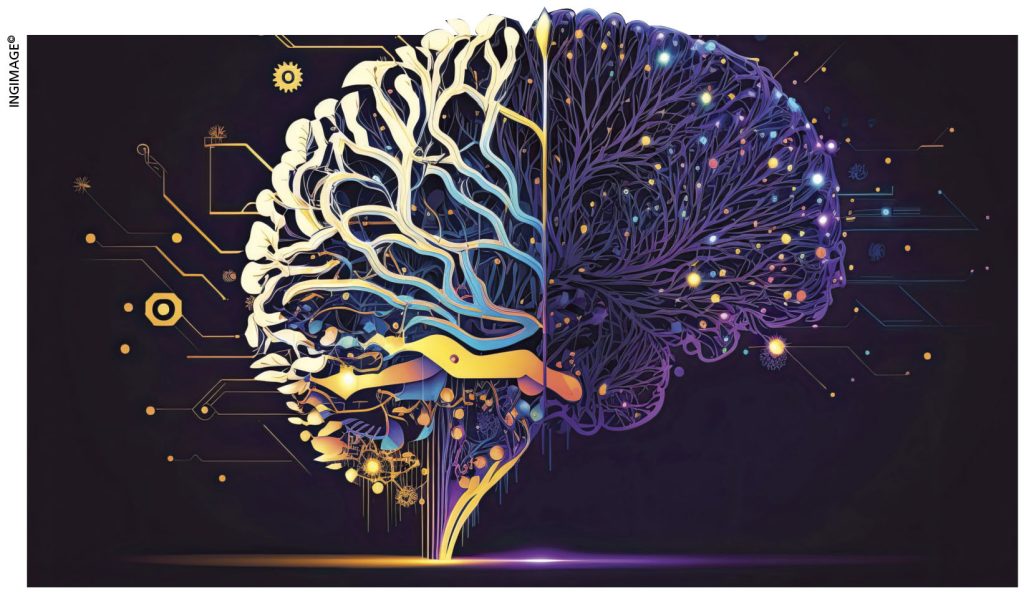NEURO-MARKETING
The art of neuro-marketing, which blends neuroscience and marketing, has evolved dramatically with AI. Artificial intelligence technologies such as machine learning and computer vision enhance tools such as EEG and biometric sensors, to enable real-time monitoring and predictive insights into subconscious consumer behaviour.
However, this advancement raises ethical concerns, and the urgent need for global standards to ensure responsible and effective use. Researchers emphasise that maintaining scientific rigour and ecological validity keep these innovations both reliable and meaningful.
ETHICAL CONCERNS APLENTY
Sanjeewaka Kulathunga moots standards for tracking subconscious behaviour

And new approaches are pushing boundaries further.
For example, some models combine EEG data with real-time behavioural indicators such as mouse pauses or hesitation in clicks to predict consumer preferences almost instantaneously. This capability for fine-grained personalisation is groundbreaking but simultaneously presents ethical challenges.
The risk of psychological manipulation through such precise profiling demands clear enforceable standards to protect consumers’ rights and autonomy.
ETHICAL ISSUES Neuro-marketing faces ethical concerns. Key issues include protecting privacy, securing data, respecting personal autonomy, ensuring informed consent, maintaining scientific credibility and guarding against mental intrusion or so-called mind control.
Researchers caution against covert algorithmic manipulation masked as legitimate marketing efforts. Consequently, there’s growing advocacy for explainable AI (XAI) approaches that provide transparency about what data is collected, how it’s processed and why decisions are made.
Transparency fosters informed and voluntary consumer participation, which is foundational to ethical practice.
Experts propose a global framework grounded on three essential pillars: technical standardisation, ethical accountability and regulatory alignment. Technically, standardising data formats across brainwave measurements, eye tracking and facial recognition systems is vital.
Such interoperability facilitates collaboration across institutions and enables reproducible research, which strengthens scientific trustworthiness.
Ethically, AI systems that can detect subtle emotional and mental states such as engagement, stress or distraction may carry unique risks. Without clear boundaries and safeguards, these tools could be exploited for manipulation by undermining psychological autonomy.
Therefore, establishing ethical guidelines to limit intrusive practices is critical.
Regulatory frameworks must also evolve to address neuro-marketing’s particular challenges. While general artificial intelligence regulations emphasise fairness and transparency, they often overlook the nuanced nature of neuro-data.
Regulators need to determine when subconscious influence requires explicit user consent and how sensitive neural information should be protected.
NEURO-LABELS Concepts such as neuro-labels, which disclose the use and purpose of neuro-data to consumers while offering opt in or opt out choices, are gaining traction as practical solutions to improve transparency and consumer control.
Academic literature plays a major role in guiding ethical neuro-marketing. For instance, Smart Persuasion examines how behavioural economics can inform responsible marketing and Predictably Irrational reminds us that human decisions often defy logical models – an important consideration for artificial intelligence developers.
Recent works call for balancing technological innovation with ethical caution to avoid overreach and protect consumer dignity.
Professional bodies are actively shaping the field’s future and focussing on neuro-marketing and neuro-AI. They’re already testing preliminary guidelines, developing best practices and creating certification processes, to promote accountability and build public trust.
NOTABLE CHALLENGES Nonetheless, notable challenges remain. Algorithmic bias, often stemming from skewed or incomplete training data, threatens fairness and inclusivity.
Moreover, biometric signals such as pupil dilation or micro expressions may differ widely across cultures and individuals, complicating the accuracy and universality of emotion detection.
Additionally, varied cultural and legal perspectives on data privacy pose obstacles to establishing globally consistent standards.
Research efforts are focussing on consent models that prioritise user choice and control. International organisations such as IEEE and OECD are incorporating neuro-marketing and neuro-AI issues into updated ethical frameworks, while working towards harmonised terminology and practical guidelines.
Transparency is essential with algorithms that are clearly communicating their psychological or behavioural insights and neural basis.
Experts propose a global framework





